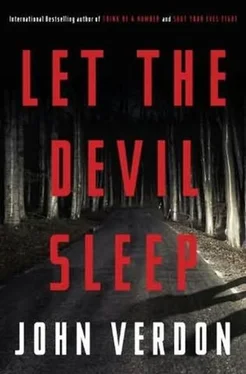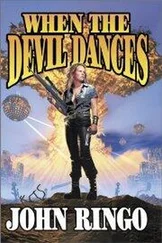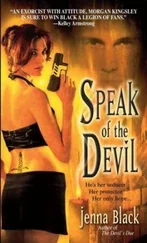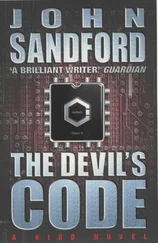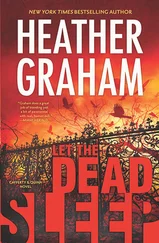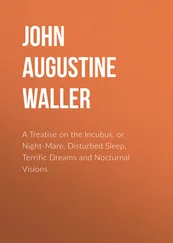“I’m not sure.”
“He sounds like an officious ass.”
“Oh, there’s no doubt about that.”
“But you’re worried that he might be a dangerous ass?”
“That’s one way of putting it.”
She brought the noodle-asparagus-mushroom platter to the table, then got plates and silverware. “This is all I cooked tonight. If you want to add meat, there are some leftover meatballs in the fridge.”
“This is fine.”
“Because there are plenty of meatballs, and-”
“Really, this is fine. Perfect. By the way, I forgot to mention, I suggested to Kyle that he and Kim come back up here for a couple of days.”
“When?”
“Now. Starting tonight.”
“I mean when did you suggest it?”
“I called them on my way home from Sasparilla. The fact that they got that message in the mail means the sender knows where Kyle lives. So I thought it might be safer-”
Madeleine frowned. “The ‘sender’ also knows where we live.”
“It just… feels better to have them up here. Strength in numbers, maybe?”
They ate in silence for several minutes.
Then Madeleine put down her fork, her food only half finished, and gave her plate a small nudge toward the center of the table.
Gurney looked at her. “Is something wrong?”
“ ‘Is something wrong?’ ” She stared at him incredulously. “Did you really ask me that?”
“No, I mean… Christ, I don’t know what I mean.”
“It seems that all hell’s breaking loose,” she said. “Quite literally.”
“I don’t disagree.”
“So what’s your plan?”
She’d asked him the same question after the barn burned down. It was more unsettling now, because the situation had deteriorated so rapidly. People were dying, with ice picks rammed through their hearts. The FBI team seemed more intent on vilifying him and protecting themselves than discovering the truth. Holdenfield had insidiously undercut him with the “traumatic brain injury” and “psychological impairment” ammunition she’d fed to Trout. Bullard might be a semi-ally at the moment, but Gurney knew how quickly that alliance would evaporate if she decided it was in her interest to make peace with Trout.
But that wasn’t all. Beneath and beyond the tangle of ugly specifics and concrete threats, he had a sense of accelerating evil, the feeling of a faceless doom descending on him, on Kim, on Kyle, on Madeleine. Whatever devil that little recording in the basement had warned him to let sleep was awake and abroad in the land. And all Gurney had as a “plan” was his determination to keep studying the puzzle pieces, to keep searching for the hidden picture, to keep poking at the official house of cards until it collapsed-or until its defenders succeeded in dragging him away.
“I have no plan,” he said. “But if you have the time, there’s something I’d like you to look at with me.”
She glanced up at the big Regulator clock on the wall. “I have about an hour, maybe a little less. We have yet another meeting at the clinic. What do you want me to look at?”
He led her into the den, and as he downloaded the Jimi Brewster video file that Kim had sent to him, he explained what little he knew of it.
They settled into their chairs in front of the computer screen.
The video itself began with a segment that appeared to have been shot from the passenger seat of Kim’s car as it approached a roadside sign in a snowbank announcing entry into Turnwell, the virtually nonexistent northern Catskills village where Jimi Brewster picked up his mail.
His actual residence turned out to be far up into the hills, away from the bleak cluster of tumbledown homes and abandoned stores that made up the village itself. The only active establishments appeared to be a bar with a filthy front window, a gas station with one pump, and a post office in a cinder-block building the size of a one-car garage.
Kim’s car-and video-proceeded up a rutted road with snowbanks on either side, separating it from more tumbledown buildings and trees that seemed long dead rather than just seasonably leafless. Absorbing this, Gurney was struck that Turnwell represented a country environment that was as far removed from Williamstown, where Jimi’s father had lived, as the dark side of the moon. He wondered if the cultural and aesthetic distance constituted an intentional statement.
The question was increasingly on his mind as the video proceeded.
Also, the question of who was wielding the camera. Presumably Robby Meese, a fact that would place this visit to Jimi Brewster sometime prior to the breakup.
The car slowed as it approached a small house on the right. The house and the bleak property surrounding it showed an aggressive disregard for appearances. Nothing, from the posts supporting the sagging roof over the tilting porch to the door of the adjoining outhouse, was set at a right angle to anything else. In Gurney’s experience a blatant disregard for the ninety-degree concept was usually an indication of poverty, physical incapacity, depression, or a cognitive disorder.
The man who emerged from the shabby front door onto the porch was slim and nervous-looking, with darting eyes. He was wearing black jeans and a T-shirt of the same orangey color as his short hair and close-cropped beard.
His having been a freshman in college twenty years earlier would make him at least thirty-seven, but he looked a decade younger. The CHALLENGE EVERYTHING aphorism printed in bold letters on the front of his shirt lent support to the image of youthfulness.
“Come in,” he said, waving his guests impatiently toward the door. “It’s fucking freezing out here.”
The camera followed him inside. The back of his shirt proclaimed, AUTHORITY SUCKS.
The interior of the house was as uninviting as the outside. The furniture in the small front room was minimal and worn-looking. There was a colorless couch against one wall and a small rectangular table pushed against the opposite wall with a folding chair on each of its exposed sides.
There was a closed door on each side of the couch. A door in the rear of the room provided a glimpse of a narrow kitchen. The light was coming primarily from a wide window over the table.
As the camera panned around the cramped space, Kim’s voice could be heard. “Robby, turn that off until we get settled.” The camera continued to run, zooming in slowly on the slight, red-haired man, who was shifting his weight from foot to foot with a twitchy energy. It was hard to tell whether he was smiling or grimacing.
“Robby. The camera. Off. Please .” Despite Kim’s peremptory tone, the video continued for at least ten seconds more before fading to black.
When the picture and sound resumed, Kim and Jimi Brewster were sitting across from each other at the table. The picture angle and framing suggested that Meese was probably operating the camera from somewhere on the couch.
“All right,” said Kim with the kind of enthusiasm Gurney remembered seeing in her the day he met her. “Let’s get right into it. I want to say again, Jimi, how much I appreciate your willingness to take part in this documentary project. By the way, would you prefer that I call you Jimi or Mr. Brewster?”
He shook his head-a small, jerky movement. “Doesn’t matter. Whatever.” He began drumming his fingernails lightly in a staccato rhythm on the tabletop.
“Okay. If it’s all the same to you, I’ll call you Jimi. As I explained while we had the camera turned off, this conversation we’re having now is a preliminary run-through of some questions I’ll be asking you at a future date in a more formal-”
He stopped his drumming abruptly and broke in. “Do you think I killed him?”
Читать дальше
